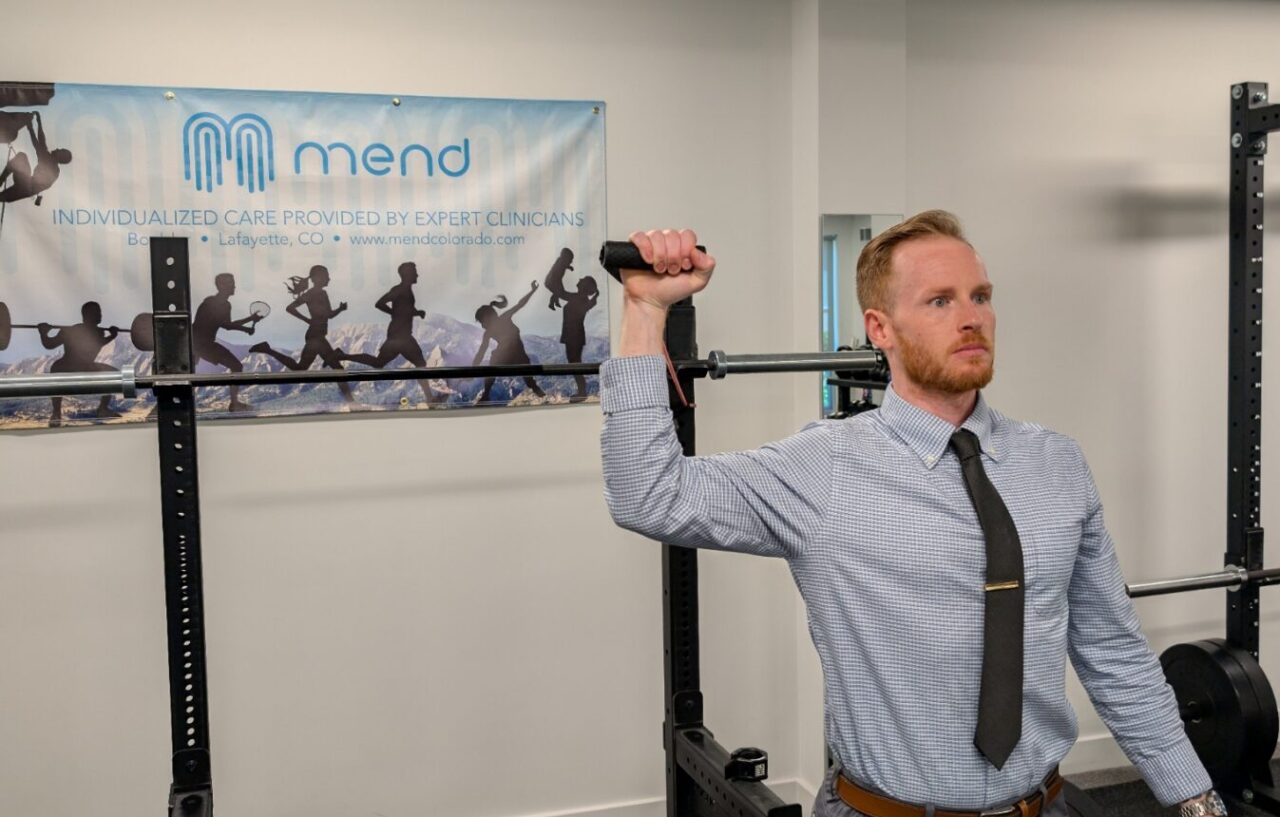Shoulder pain is one of the most common musculoskeletal disorders that we see at MEND, and in fact, will affect about 25% of all individuals at some point in their lives (1). Pain-relieving injections such as cortisone or corticosteroids have traditionally been used as a first-line treatment for shoulder pain and specifically rotator cuff-related symptoms. This is quite common if you go see an orthopedist. However, based on current research, these injections have been shown to have a wide range of adverse effects on the rotator cuff integrity, particularly at the tendon level.
A systematic review published in 2020 showed that corticosteroids “suppress an inflammatory response, induce apoptosis, and have negative effects on collagen and tendon cell viability in RCTs (rotator cuff tendons). The mechanical properties, including load to failure of RCTs and rotator cuff repair anchor pull-out strength, also are decreased by CSIs.”2 In layman’s terms, this means that a corticosteroid injection will slow down the natural inflammatory response of our body which is vital for tissue repair. It will also negatively alter the composition of the collagen that makes up the rotator cuff tendons, which lead to less integrity and increased tendon failure, meaning that the tendon is more prone to rupture. These deleterious effects occur as soon as 24 hours after the injection and may last several weeks.
For individuals who have already had a surgical procedure to repair the rotator cuff, corticosteroid injections increase the failure rate of the repair anchors. This is vital information for anyone who may be dealing with a rotator-cuff related injury to the shoulder, such as weightlifters, climbers, overhead/throwing athletes, and most active individuals.
Our clinicians at MEND Boulder and Lafayette are highly trained to diagnose and treat shoulder injuries in a natural manner without injections, medications, and other unnecessary medical interventions. We would love to help you solve your shoulder pain!
Click here to schedule your next appointment with the experts at MEND
Murphy RJ, Carr AJ. Shoulder pain. BMJ Clin Evid. 2010 Jul 22;2010:1107. PMID: 21418673; PMCID: PMC3217726.
Puzzitiello RN, Patel BH, Forlenza EM, Nwachukwu BU, Allen AA, Forsythe B, Salzler MJ. Adverse Impact of Corticosteroids on Rotator Cuff Tendon Health and Repair: A Systematic Review of Basic Science Studies. Arthrosc Sports Med Rehabil. 2020 Apr 8;2(2):e161-e169. doi: 10.1016/j.asmr.2020.01.002. PMID: 32368753; PMCID: PMC7190543.

